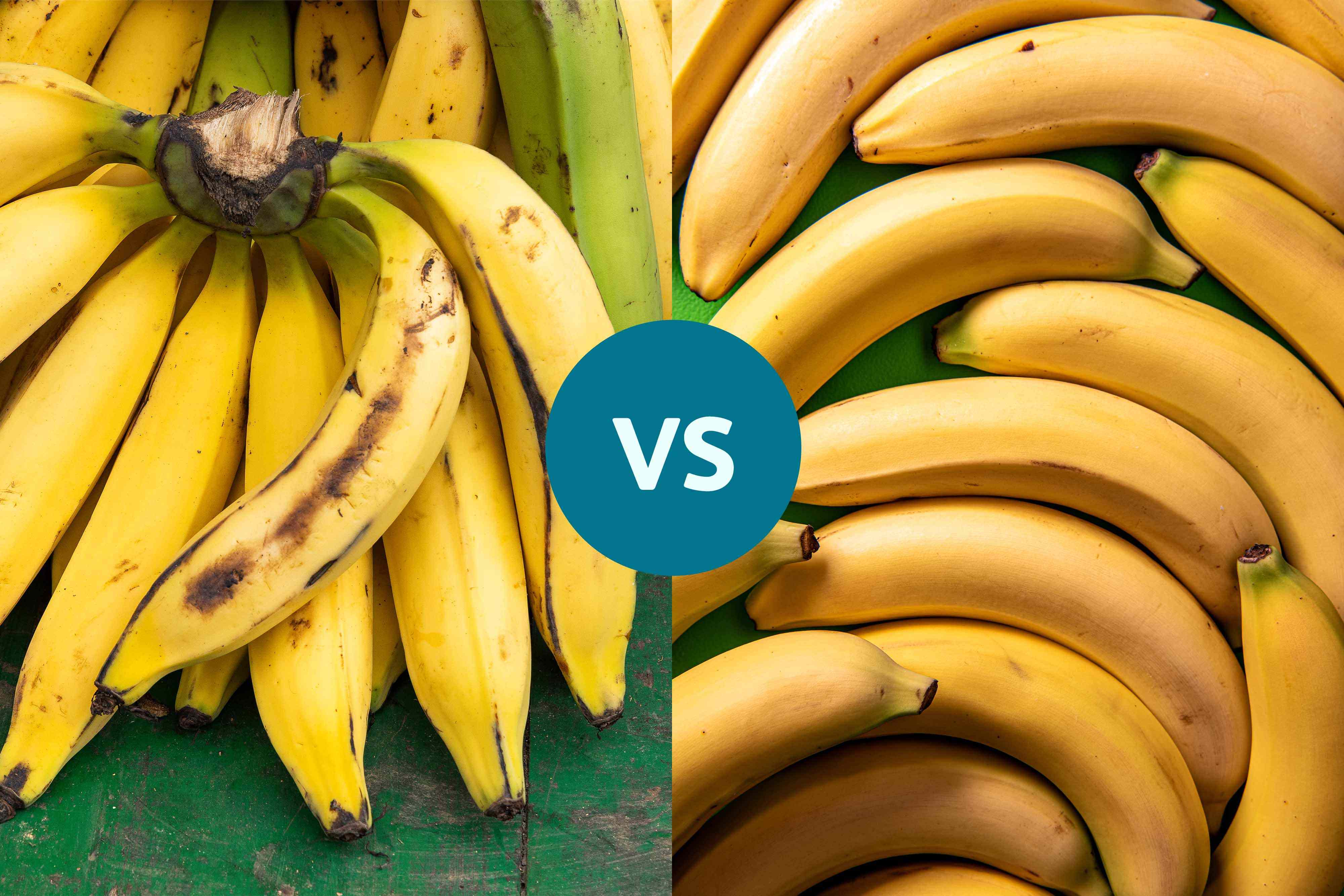Medically reviewed by Roxana Ehsani, RD
Bananas and plantains are fruits that belong to the same family and share some nutritional similarities; however, they differ in many ways, including flavor, texture, and how they are used. Whether you’re deciding what to add to your smoothie or what to cook for dinner, understanding the differences between plantains and bananas can help you make the best choice for your health and your taste preferences.
Which Is Healthier?
Determining which is healthier depends on your specific health needs and goals. If you’re counting calories or monitoring blood sugar levels, bananas might be a better choice due to their lower calorie and carbohydrate content. However, plantains offer a broader range of nutrients, particularly vitamin A and potassium. Both plantains and bananas are excellent sources of potassium which supports heart health and muscle function.
It's important to consider that plantains are usually cooked by frying, meaning added fats and oils can increase the calorie and fat content of the dish. To keep things healthy, try baking or boiling them instead of deep frying. When consumed unripe, plantains cause a slower rise in blood sugar compared to ripe bananas or refined carbs.
Their high natural sugar content means they can spike blood sugar more quickly than other fruits, especially when very ripe. People with kidney disease may need to limit their potassium intake, making frequent banana consumption something to monitor. By incorporating both into your routine, you can enjoy a diverse range of flavors and nutrients that support your overall health.
Differences
Bananas and plantains may look similar but they have key differences. Bananas are soft, sweet, and often eaten raw. Plantains are starchy, firm, and usually need to be cooked before eating. They taste more like a potato than a piece of fruit when unripe. Additionally, plantains are generally larger and have thicker skin than bananas. Their peels are tougher to remove, especially when green.
Bananas are typically consumed more as a snack and are used in baked treats or desserts. Plantains, on the other hand, are a staple ingredient in many savory dishes across African, Caribbean, and Latin American cuisines. They're commonly boiled, fried, or baked, however as they turn yellow and ripen, their flavor becomes sweeter.
Similarities
Plantains and bananas share several key similarities. They both come from the Musaceae family of flowering tropical plants and grow in tropical climates, where they serve as staple foods in many cultures. They are also both available and in season year-round.
Nutritionally, plantains and bananas are rich in complex carbohydrates, potassium, vitamin C, and dietary fiber. They support heart health, digestion, and immune function. They're also both gluten-free, which makes them a safe choice for people with gluten sensitivities or Celiac disease.
As they ripen, both plantains and bananas transition from firm and starchy to soft and sweet. Their darker peels represent higher sugar content. While bananas are commonly eaten raw and plantains are usually cooked, both can be boiled, baked, fried, or blended depending on their ripeness and desired use. Their versatility and nutrient content make them valuable additions to a balanced diet.
Plantain Health Benefits
Plantains are high in calories, complex carbohydrates, and rich in potassium, making them a great source of energy. Some health benefits of plantains include:
- Offer a rich source of vitamins A and C, which support immune function and vision health
- Provide dietary fiber, which supports healthy digestion
- Help regulate blood sugar
- Promote fullness
Banana Health Benefits
Bananas have more natural sugars, which contribute to their sweet taste and make them a better choice for smoothies and snacks. Some health benefits of bananas include:
- They contain substances that help feed healthy gut bacteria, which can aid with digestion and promote regular bowel movements
- They are also a great energy source and can help reduce the incidence of exercise-related cramps.
- Bananas are a rich source of potassium, which helps regulate blood pressure, supports muscle contraction, and promotes heart health.
Key Takeaways
- Bananas and plantains are both nutritious fruits with unique benefits.
- Bananas are lower in calories and sugar and are convenient for raw snacking.
- Plantains offer more fiber, potassium, and vitamin A, but typically require cooking.
Read the original article on Verywell Health






